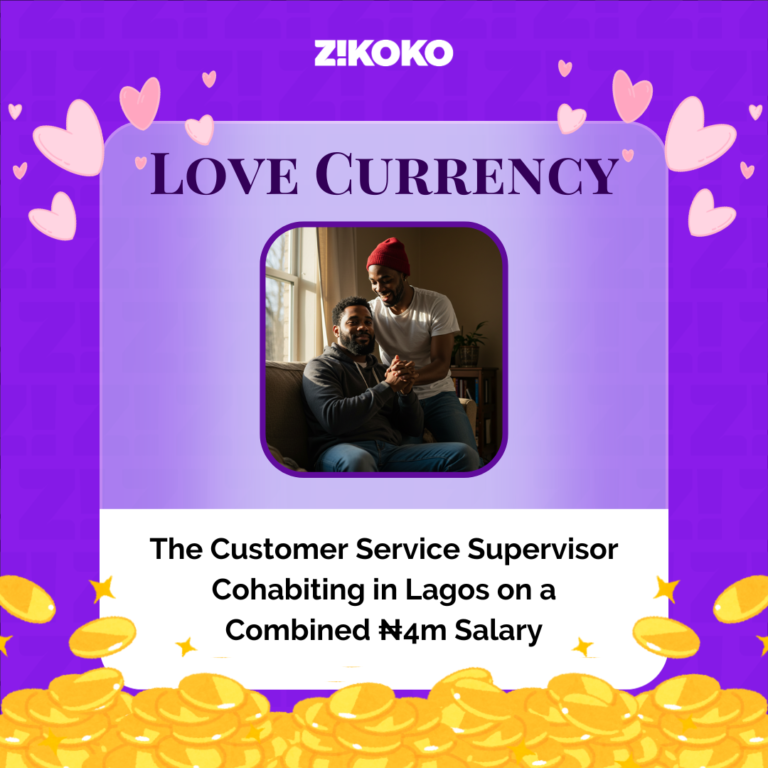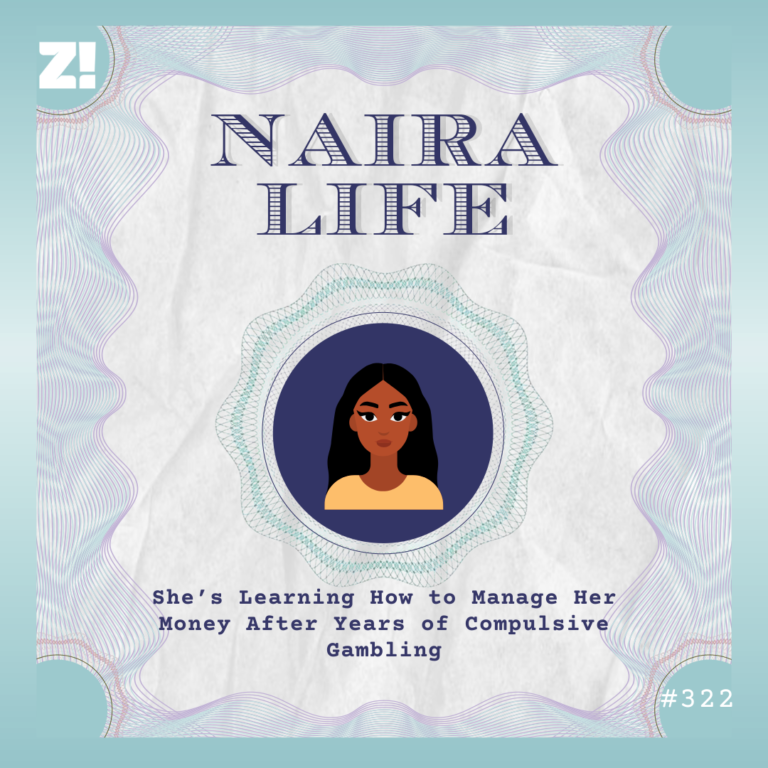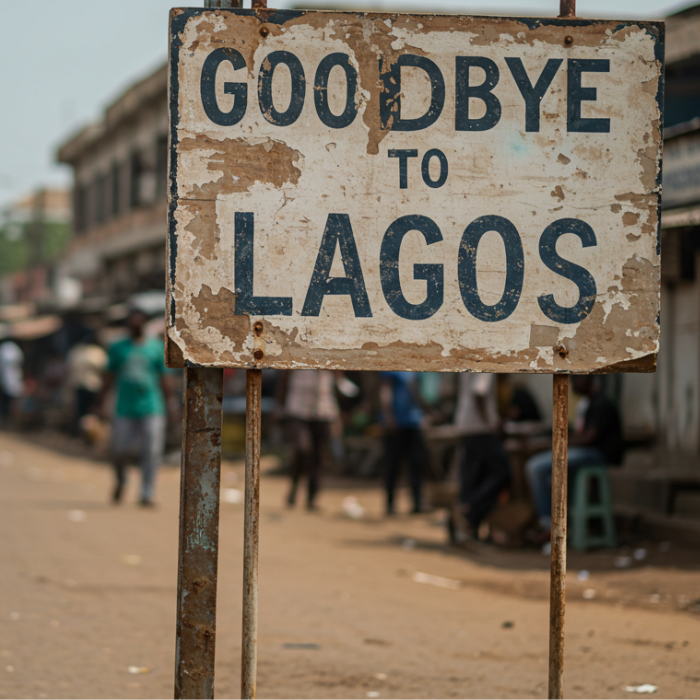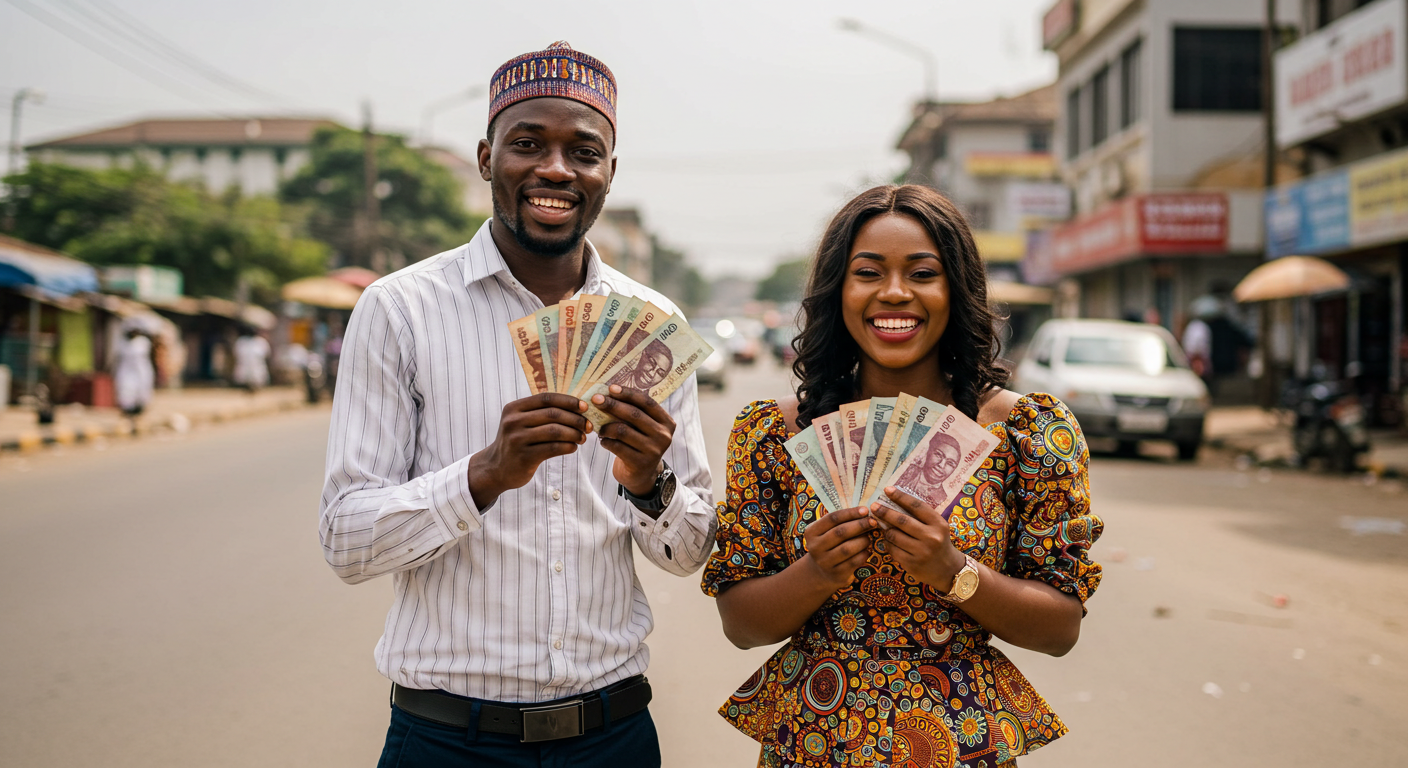Every week, Zikoko seeks to understand how people move the Naira in and out of their lives. Some stories will be struggle-ish, others will be bougie. All the time, it’ll be revealing.
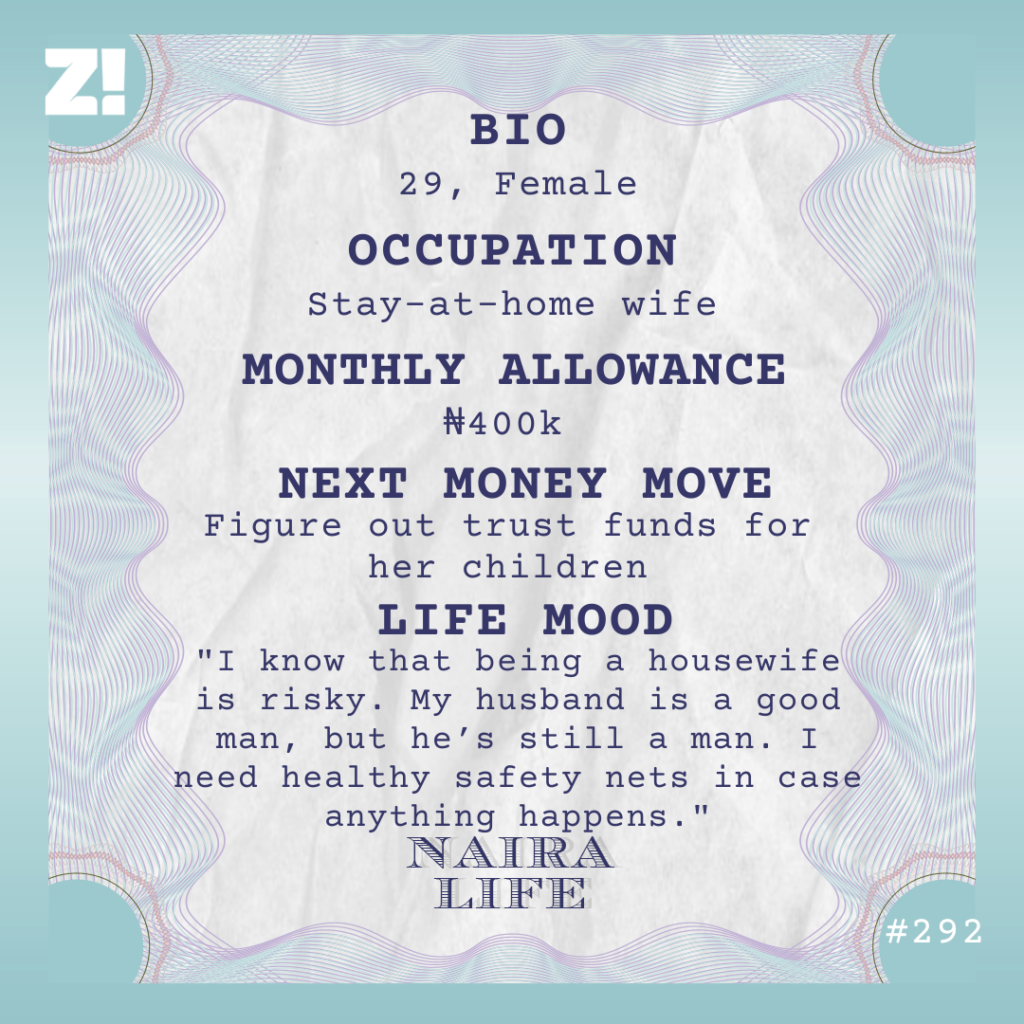
Tell me about the first time you made money
I was 13 years old and in SS 1. I had the bright idea of selling my sister’s time to senior boys in boarding school. She was in SS 3 then, and the finest girl in our school, and all the boys followed her like bees to honey. So, I monetised it.
How did it even work?
My sister and I are really close, but she’s quiet to a fault. I’m the stubborn, outspoken one. There was this boy in her class who liked her, but my sister was blissfully unaware. He came to me to help him talk to her, and I jokingly suggested he pay me ₦100 to arrange a time for them to talk during prep.
He paid, and I convinced my sister to talk to him. Then I did the same for another boy, then another. I got away with it five times before my sister stopped cooperating.
I still jokingly tell her we could’ve made serious money if she’d been more open-minded. Maybe she’d have agreed if I’d given her a cut of the money. But to be honest, it’s not like we needed the money.
That means there was money at home, yeah?
Oh, there was money. I come from a polygamous family; my dad had four wives and plenty of concubines, but he did right by everybody. My dad had filling stations, and all his women had their own houses.
My mum was the last wife and didn’t work — except for a lace store she kept for keeping sake — and my sister and I didn’t lack. I can also say we were spoiled. When I graduated from secondary school in 2010, my mum gave me a brand new Blackberry as a present. Blackberry phones were the iPhones of 2010. I was a big girl.
My mum doesn’t even know this, but I gave the phone to one foolish boy I liked at university. He broke my heart and refused to return my phone.
Breakfast … we’ve all been there. Talking about university, did you do anything for money while studying?
I tried my hand at several small businesses, but I was a classic case of “money miss road.” I had too much money, and I’ll explain.
The minute I got into uni in 2011, I began receiving double allowance from both parents. They didn’t live together, so they sent me money separately, and I never mentioned that the other parent had already sent money. My mum sent ₦40k/month, and my dad sent ₦60k. Apart from the money, my mum regularly sent me foodstuff through other relatives.
Me, I was just spending like Mother Christmas. I had an off-campus apartment, and my friends loved to visit because I’d either cook or take them out. If I wasn’t buying my friends food, I was dashing them money. I once paid a friend’s ₦80k hostel fee because I was tired of looking at the money in my account. It was the same friend who suggested I try a business since I didn’t have anything to do with money.
I’m screaming. So, what did you do?
I decided to sell chiffon tops and jeans in 300 level. My sister introduced me to a friend who sold them wholesale. I think I bought each top between ₦1k – ₦2k, and a pair of jeans for around ₦2k. The first batch I bought cost ₦50k, and I added a profit of between ₦2k – ₦3k on each item and made good sales. But I didn’t see any money. Both capital and profit, I didn’t see. Everyone bought on credit and didn’t repay me.
I think a major reason my friends were comfortable buying and not paying was that I already had a reputation for being Mother Christmas. Me too, I didn’t know how to pursue people for money, so I only asked a few times and left them. The business didn’t last three weeks.
Next, I decided to sell makeup products. I used ₦30k to buy powders and brushes, but I ended up giving them out because marketing them was too stressful. Imagine someone asking whether the IMAN powder I was selling for ₦2500 was original. How will original IMAN be ₦2500? Nigerians should fear God. I sha left that one too.
Then I tried to sell sneakers, but after I kept “collecting” my goods for personal use, I decided to hang up my entrepreneurial boots and call it a day. I survived on my allowance until I eventually left university in 2016.
Let me guess. NYSC came after
Yup. NYSC posted me to the north, but I wasn’t about to risk my life for ₦19800. So, I worked out redeployment through my dad’s friend to my home state. My PPA was a local government, and the only thing I did was to buy food for my supervisor. I did that twice before I gave myself brain and decided I couldn’t use my one-year service to play errand girl, so I disappeared. I paid my supervisor ₦5k from my allawee monthly so I could leave to look for better opportunities.
Did you find better opportunities?
Not immediately. I wanted to get a job with one of the Big Four accounting firms, but omo, I saw shege with the assessment exams. When nothing came out of those, I took a gap year to just relax. I planned to rely on allawee and my mother’s food — an advantage of living at home.
But I almost didn’t survive that gap year sef — I was so broke. I didn’t realise just how little ₦19800 was until I had to live on it. I never went hungry o, but I was so limited. I couldn’t eat out with my friends or buy clothes and shoes. It was terrible. I couldn’t even whine my parents to give me money because they’d be like, “What are you using money for? Aren’t you at home?”
I tried to find jobs halfway through the year, but the only one I found was a ₦50k accounting job, and the office was so far from my house. I’d have spent the whole salary on transportation. I didn’t take it.
That period made me realise the importance of savings or a safety net before making foolish decisions like not wanting to work. Maybe if I’d saved when I was receiving so much money in school, I wouldn’t have felt like poverty was knocking on my door.
Real. Did you have better luck with job search after NYSC?
Not really. I wanted a job that paid nothing less than ₦120k. But I was broke, and beggars don’t have a choice. So, I settled for one at a small firm at ₦70k/month. This was in 2018.
The salary wasn’t too bad, sha. My boss lived in my neighbourhood, so I hitched free rides with her daily. I wasn’t flexing as much as I did in uni, but I could afford to buy myself a nice bag after collecting my salary. I also tried to save at least ₦10k/month for my emergency savings.
I worked at the job for almost two years before I got married and left in 2020. By the time I left, my salary had grown to ₦105k.
Did marriage mean you had to stop working?
Yes. My husband requested it before marriage, and he probably thinks I stopped because of him. Oga doesn’t know I was only happy to leave the workforce.
A little backstory: My husband was widowed when I met him in 2019. His wife had passed away a few years before, leaving him with two children. He wanted someone who’d be there for him and the children. So, he was clear that he wanted a housewife.
On the other hand, I was already looking for how to get paid to do nothing. I didn’t enjoy working and the idea of slaving all month for a salary that didn’t last two weeks. I was already checked out. But I didn’t tell my husband this sha. I made him believe he was asking too much of me. We came to a compromise — He’d pay me ₦300k/month as “salary” so I wouldn’t have to work.
I have no choice but to stan
Haha. That’s minus money for food at home and the children’s expenses. The salary is for me to spend as I like. My salary increased to ₦400k earlier this year after complaining about Tinubu’s economy and how inflation has made everything expensive.
However, the truth is, I hardly spend the salary. The ₦500k allowance I get for the home’s upkeep is enough to cover the necessities, and I still squeeze out a little to buy the random shoe or bag. I also whine my husband to give me extra money for aso-ebi and gold for family functions.
My attitude to money has changed since I got married. I’m now very intentional about having different safety nets. I save and invest first before doing anything. I have about ₦2m in a secret savings account and two landed properties in my hometown. I also have a considerable gold collection I can sell in an emergency.
Is there a reason for the sudden interest in safety nets?
I know that being a housewife is risky. My husband is a good man, but he’s still a man. I’ve heard several stories about how men can suddenly start acting funny because their wives are 100% dependent on them.
Plus, he’s a Muslim. What happens if I wake up tomorrow and hear he wants to marry another wife? That might reduce my allowance. I also suspect he has a girlfriend, but I won’t bother myself with that.
I just need to make sure I have healthy safety nets in case anything happens. He doesn’t know about my properties, and I’m trying to convince him to build me a house as my next birthday gift. If anything goes south, I want a secure future for myself and our children.
What needs to happen for you to know you’ve hit this goal?
Hmm. I haven’t really thought deeply about this. I think the biggest indicator of a secure future is when I can afford to create a trust fund for my children’s school fees up until university. I’m not sure what that’ll cost yet, but this question has got me thinking about how I can do that. At least if anything happens, I should know I can keep my kids in school.
Let’s go back to the monthly allowance and salary. How do you spend that in a typical month?
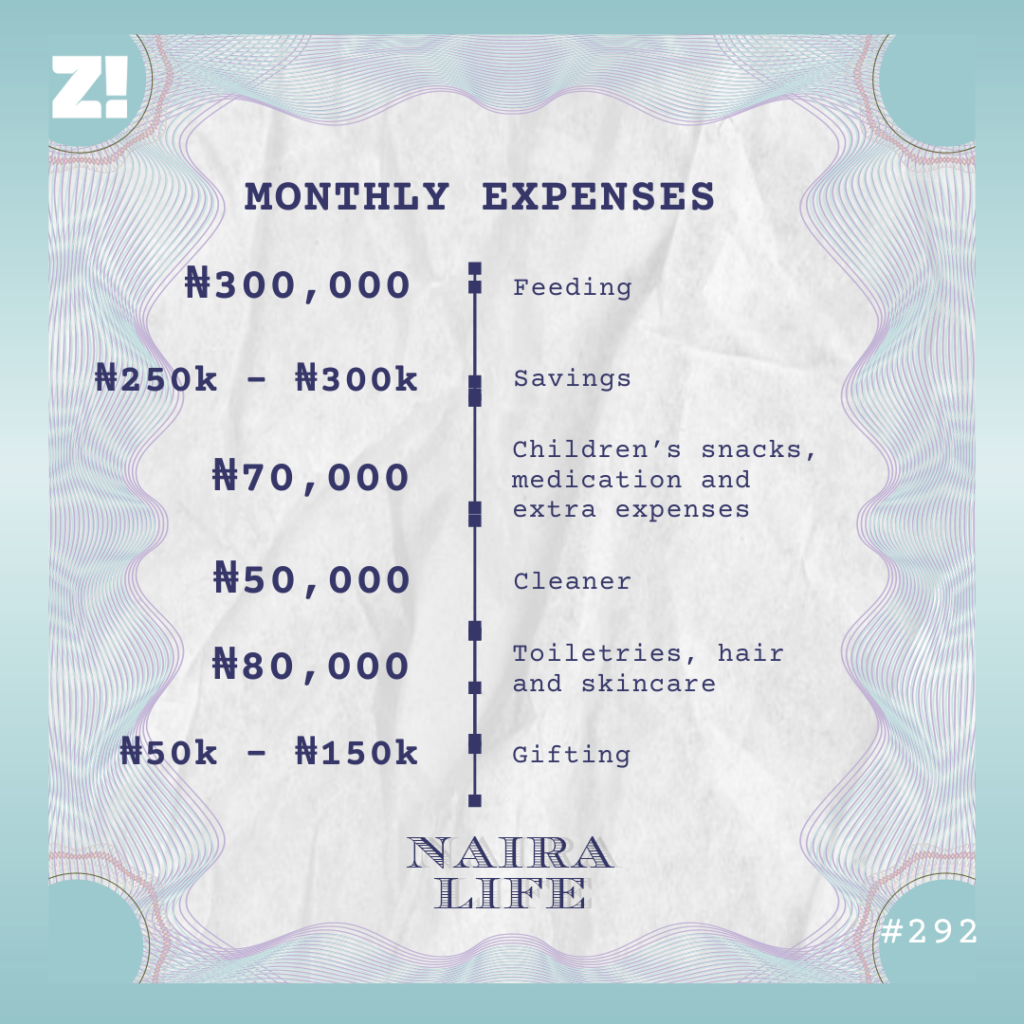
My gifting budget is for the biweekly bulk cooking I do for charity. Sometimes, part of the money goes to settling people who come to me with needs. I send my mum a monthly ₦80k allowance, but that comes from my husband. It’s not part of my salary or home upkeep allowance.
Do you think you’d ever return to the workforce?
What for? What am I looking for there? I intend to avoid having to work as much as I can. It’s not like I spend my days lazing around. I’ve had two more children since I got married, and taking care of four children isn’t beans at all.
A cleaner comes in twice a week, but I still feel like I’m constantly cleaning, cooking, and shouting at the children. I can’t add a job or business to the stress I already experience daily. That’s why I’d rather focus on having good investments and emergency savings to fall back on.
What’s an ideal investment portfolio for you?
Real estate, gold, naira, and dollar savings. I’d like to own at least two houses and rent them out for extra income. If my husband builds me one, I’ll just have to focus on getting money to build the second one.
I’m considering using one of my lands as a farm as I’m not building yet, but I’ll need to figure out how to get someone to run it so I don’t stress myself out. But then, I don’t trust Nigerians like that. I can employ someone to oversee the farm now, and they will use my money to enrich their own pockets. So, I may not do the farm thing.
I don’t have a cap on how much money I’ll have in naira and dollars that’ll be enough for me. I just want to have money.
I get it. What’s the last thing you bought that significantly improved the quality of your life?
This is funny, but I bought a child leash for my 1-year-old last month. We spent part of the summer holiday in my husband’s hometown, and I know my child likes jumping up and down. He literally watches for when you’re distracted so he can snatch his hand from your grip and rush into the road.
I didn’t want him walking around, so I bought a child leash online for ₦50k and put it on him. It’s like a mini bag pack with a rope that I can snap on my wrist so he doesn’t go far. People kept looking at us weirdly, but I was so happy with my purchase. I wish I had known about child leashes for the other kids earlier.
How would you rate your financial happiness on a scale of 1-10?
7. I have all my needs met, and I don’t regret dumping my career. It’ll be a 10 when I have my houses.
If you’re interested in talking about your Naira Life story, this is a good place to start.
Find all the past Naira Life stories here.


